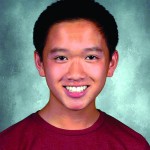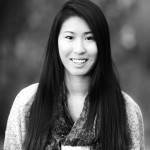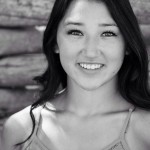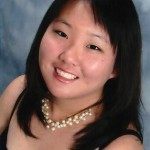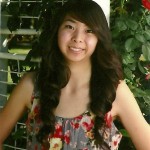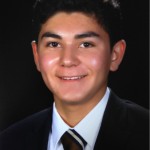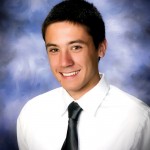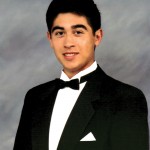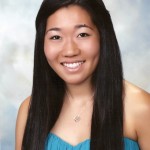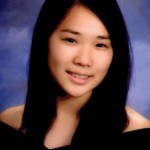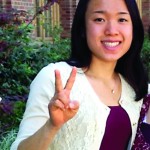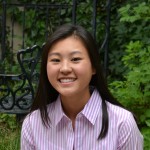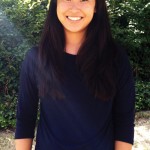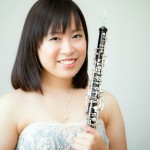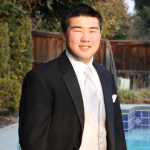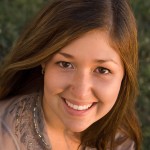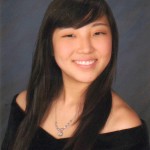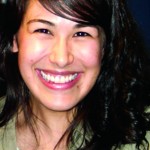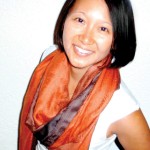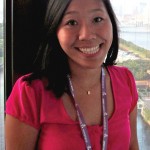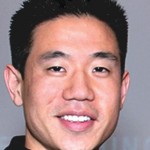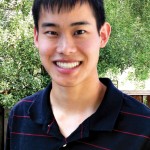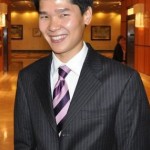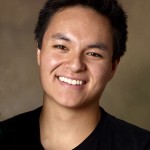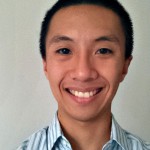2014 Essay Topic
This year’s JACL scholarship recipients were asked to respond to the following statement:
‘JACL has historically been a Japanese American organization, rooted in advocating for Japanese Americans. How can the JACL continue to be inclusive of our non-Japanese American members?’
Editor’s Note: All student responses reflect those that were submitted to the P.C. by the respective Scholarship committees.
Freshman Winners
Philadelphia JACL
Henry & Chiyo Kuwahara Memorial Scholarship
Brown University
‘JACL has a rich history of civil rights involvement, initially on behalf of Japanese Americans, subsequently expanding on behalf of all others. Much of JACL and its members is embodied deeply in American history and society, from the relocation history itself to the wartime Supreme Court cases to the reparations movement and later coram nobis cases. During those many times when the United States turned inward and citizens expressed distrust of ‘outsiders,’ it is the JACL who spoke out on their behalf. I believe the JACL should maintain its thumbprint identity at its root as a Japanese American organization, while welcoming inclusion of all others who need advocacy for civil rights.”
Mt. Olympus JACL
CWO 4 Mitsugi Murakami Kasai (Ret) Memorial Scholarship
University of Southern California
‘Growing up as a Japanese-Chinese-American girl in Utah, balancing traditions with new experiences has been a big part of my life. The homogenous atmosphere forced me to define my values and beliefs from a young age. Luckily, I had a tight group of Asian friends and family who taught me to be proud of my beliefs and heritage while also staying open-minded to others. . . . By rallying on the front to advocate Japanese American rights and promoting acceptance and cultural awareness with an open mind, the JACL can continue to be more inclusive to non-Japanese members. We cannot judge knowledge about Japanese culture or the ability to advocate human rights issues based on race or ethnicity, but we must be open and unite as members to fight for the main goal of social equality and education for all.”
Puyallup Valley JACL
Deni & June Uejima Memorial Scholarship
University of Washington
‘In hearing stories of the history of my family and other Japanese Americans, I am inspired by their courage, strength and ability to overcome significant obstacles including cultural adaptation, internment and discrimination. Their determination paved the way for future generations of Japanese Americans who, like me, a fifth generation (gosei), can now enjoy a much more prosperous future. I have tremendous respect and appreciation for my cultural heritage and the work of my ancestors. Through organizations like JACL, I hope to be a part of the promise that future generations have equal and fair rights. JACL works to maintain our cultural identity and individual rights, and while doing so, it is important that we inform and include non-Japanese American people to join the movement against issues that may enhance or threaten our rights as a community.”
French Camp JACL
Paul & Katherine Ohtaki Memorial Scholarship
University of California, Santa Barbara
‘At the local level, JACL chapters need to continue to push a race-blind membership policy. As a civil rights organization, this should be an obvious requirement; however, in actuality, there is often an unwritten code within Nikkei community activities that it is invitation-only. The merits of having a diverse membership should be made more apparent to local chapters including: less group-think and more original idea generation; establishment of new relationships and networks in the community; and, most importantly, membership growth and sustainability. Within my local area, I have unfortunately seen instances where Nikkei organizations (i.e., from basketball teams to Kenjinkai) have unfortunately ceased operation due to a lack of Nikkei members when there are so many potential non-Nikkei members who could potentially fill the void and keep the traditions alive.”
Sacramento JACL
Sam & Florice Kuwahara Memorial Scholarship
University of the Pacific
‘JACL’s prominent vision for their organization is to promote a world in which diversity is embraced and equally respected in all aspects of fairness and social justice. However, a constant struggle, as with many cultural/ethnic-based organizations, is how one such organization can be more inclusive of their non-Japanese American members. I believe that greater visual representation and continuous organizational involvement within varying ethnic affairs is the key toward transcending this obstacle.”
Philadelphia JACL
Sam & Florice Kuwahara Memorial Scholarship
Washington University in St. Louis
‘I believe we are rightly focused on challenges to civil rights that extend beyond our immediate community. But, we must continue to leverage organizational resources and scope to remain actively involved in issues impacting the Japanese American community, and we might do well to clearly define our mission to include such considerations. The scholar Hillel is credited with the quote, ‘If I am not for myself, who will be for me? And, if I am only for myself, then what am I?’ I think that many of the challenges facing the JACL can be reduced to these tensions between responsibilities to immediate community and to the greater collective. Our organization has evolved to embrace a greater societal role without forsaking obligations to the Japanese American community.”
Hoosier JACL
Shigeki ‘Shake’ Ushio Memorial Scholarship
Indiana University
‘Thirty years ago, my mother wrote an essay for this scholarship about her mother’s (my grandmother’s) experiences following the Executive Order 9066 declaration. With the incarceration, perceived differences were amplified and exaggerated at great expense to my grandmother’s generation, whether it was those who served in the military (442nd and 100th battalion) or lost their livelihoods at home. This history of JACL as advocates for the rights of Japanese Americans was inherent on the perception by policy makers that they were somehow a distinct threat to the general populace. Thankfully, now, the lives of Japanese Americans and their families have improved from this history due to a JACL that has provided the path to challenge their constitutional rights for a ‘greater America,’ has an unrelenting commitment to inclusivity and represents the bridge between the Japanese and non-Japanese JACL members.”
Watsonville-Santa Cruz JACL
Mr. & Mrs. Takashi Moriuchi Scholarship
UNIVERSITY TK
‘The National JACL provides a lot of opportunities for college students — the annual Collegiate Conference, the newly created Kakehashi Project and the numerous workshops presented at college conferences around the nation. But what about interested high school students? Besides ‘Bridging Communities,’ there aren’t a lot of national options left for my peers and me. The high school audience is a seemingly untapped resource, and there is no organization better suited to implement a nationwide educational program for us than the JACL. With the success of JACL’s other youth programs, I believe high school-specific initiatives will not only be immensely popular, but also expand JACL’s inclusivity and commitment to its non-Japanese American members.”
Venice Culver JACL
Hanayagi Rokumie Memorial Cultural Scholarship
University of Southern California
‘Stereotyping can occur to any ethnic group, even today. Stereotypes can lead to racism, especially when they are portrayed in the media. . . . The JACL has historically battled prejudice and discrimination against Japanese Americans. Today, it takes and can continue to take a similar stance against prejudice and discrimination that affect not only Japanese Americans, but also Americans of other ethnicities. By doing so, the organization can remain relevant to both Japanese Americans and non-Japanese Americans.”
Sacramento JACL
Patricia & Gail Ishimoto Memorial Scholarship
University of California, Berkeley
‘The JACL has evolved since its inception, from an organization that focused on fostering good citizenship and civic participation to becoming a civil rights organization. Following World War II, JACL’s focus was on Issei naturalization, reparations for the internment of 120,000 Americans of Japanese ancestry, elimination of racial discrimination in housing and employment and challenging the alien land laws. Prompted by the internment camp experience, the JACL evolved with a new activism to ensure civil rights beyond just the Japanese American community. The evolution of JACL’s mission welcomes inclusiveness of non-Japanese American members, as our history serves as the foundation to prevent and right the discrimination of others.”
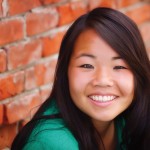 Allysha Yasuda
Allysha Yasuda
Snake River Valley JACL
Paul & Katherine Ohtaki Memorial Scholarship
University of Idaho
‘The face of the Japanese American community continues to change and evolve with shifts in demographics, the political landscape and other global issues. JACL needs to change as well and be responsive to the needs of a multifaceted membership. Programs, activities and events directed to an aging population, youth, mixed marriages and nontraditional family units are critical to the growth and sustainability of the organization. At the national, district and local chapter levels, we need to acknowledge and celebrate the changing ‘face’ of our organization and how we can serve the needs of our non-Japanese members but still remain strong in preserving our history and vision.”
Undergraduate Winners
Torrance JACL
Saburo Kido Memorial Scholarship
University of Southern California
Nicole Hamasaki’s personal statement reflected the duality of Japanese Americans who have fused their identities into their Japanese heritage and their American lifestyle. She believes that JACL through the Pacific Citizen highlights the events and celebrations in the Japanese American community for the good of all Japanese American and non-Japanese American members of JACL.
Nicole Hamasaki is majoring in English and environmental studies. She has attended Japanese school for 12 years to become proficient in Japanese and learn about Japanese culture so that she could have a closer rapport with her grandparents. Her scholastic honors include the dean’s list at USC, the Japanese American Optimist Scholarship, the Japanese American Treaty Centennial Fund Scholarship, the James Hoffa Bootstrap Scholarship, the Union Bank Scholarship, the Hollywood Dodgers Organization Scholarship, California Scholarship Federation and Lincoln PTA Scholarship.
Mile High JACL
Kenji Kajiwara Memorial Scholarship
University of Denver
In her personal statement, Megan Iritani offered three ideas for connecting non-Japanese Americans to JACL. First, she suggested starting JACL clubs on college campuses to raise awareness about Japanese culture and to stand up for the rights of students who may not feel comfortable with their identity. Second, she suggested using social media to spread the word on inequality and discrimination. Finally, she recommended working with other clubs that promote cultural values, social justice and equal opportunity for all.
While studying at the University of Denver, Megan Iritani has received the National Danforth Leadership Award and was designated a University of Denver Chancellor Scholar. Her extracurricular activities include holding office in student government, the National Honor Society and the President’s Club Leadership Council. Her community involvement includes volunteering for the Denver Sakura Matsuri, Ronald McDonald House and Hope United Methodist Church. She plans on becoming a pediatric dentist.
South Bay JACL
Shigeru ‘Shig’ Nakahira Memorial Scholarship
University of California, Berkeley
In her personal statement, Marisa Kanemitsu offered several suggestions on how JACL might prevent the marginalization of non-Japanese American minorities. She observed that the very concept of being Japanese American is now changing “. . . with a community that includes not only Issei, Nisei and Sansei Japanese Americans but also people with ever longer hyphenated ethnicities and generational identities.” Kanemitsu suggested that JACL should be the voice of this extended community in discouraging pernicious stereotyping. For example, JACL’s respectful statement on Katy Perry’s 2013 performance at the American Music Awards and the invitation of broader publics to engage in commentary may serve to expand JACL’s base. She recommended the expansion of JACL’s use of social media to foster more efficient and rapid exchange of ideas on combatting discrimination.
Marisa Kanemitsu has participated in a Nikkei Community Internship and an archaeological dig at Manzanar. She has been actively involved in community events. Her love of helping kids is demonstrated in her work at Rosa Parks Elementary School, Kumon Learning Center and the University of California, Berkeley, Early Childhood Education Program. She plans to continue to work with children by becoming a pediatrician.
New York JACL
Alice Yuriko Endo Memorial Scholarship
University of Michigan
Tsukumo Tina Niwa’s personal statement included the concept of “allyhood,” where someone in an agent group can collaborate with a target group to create a safer space to accommodate persons with different identities. She believes that civil rights groups like JACL should strive to build a network of allies that would work for the common goal of a more inclusive society that supports social justice and civil rights for all citizens.
Tsukumo Tina Niwa is a dual-degree student at the University of Michigan, where she is majoring in oboe performance and dance and literature. Her scholastic honors include the University of Michigan Merit Scholarship, Japanese American Association of New York Scholarship, Muriel Rodger Music Scholarship and the Anthony Quinn Foundation Scholarship. Her community involvement includes service as a Japanese-English translator, Japanese and math tutor for elementary school students, a benefit concert for Philippine earthquake victims, Japan Festival and the Multi-Cultural Ball Planning Committee.
Fresno JACL
Kyutaro & Yasuo Abiko Memorial Scholarship
Fresno City College
In his personal statement, Garrett Sano declared that all people deserve individual civil rights and should be protected from injustice. He noted that Japanese Americans must find allies in the defense of individual rights. “In order for this to happen, we must make people feel comfortable with the Japanese American community and our customs.” He also wrote of how discrimination against a Muslim high school friend prompted him to learn about the Five Pillars of Islamic Faith while his friend learned about Obon Festivals and the Four Noble Truths of Jodo Shinshu Buddhism. Sano suggested building on initiatives like the JACL Bridging Communities program, which brings together Asian American and Muslim students to learn with and from each other. In his words, “the future will depend on being educated on and understanding other groups’ beliefs and traditions.”
Garrett Sano is an active member of the Fresno Chapter, helping with the JACL Shinzen run and the JACL shrimp dinner.
Wisconsin JACL
Henry & Chiyo Kuwahara Memorial Scholarship
University of Wisconsin
‘JACL has a duty to advocate for other marginal groups in society. Racist individuals and groups have used Sept. 11 to foster discrimination against others in much the same way they did during World War II. JACL can play an important role in reaching out to those who recognize historical similarities. College campuses are a great place to conduct this outreach and teach these historical lessons to a generation who knows little about this history. JACL can sponsor social, cultural and political events to attract new members and share the lessons of history. For example, there can be educational sessions and lectures on the post-9/11 world and profiling terrorists based on appearance. The principles of equality and justice for all that JACL stands for can be applied to minority groups beyond just Japanese (Americans). Hosting educational events that focus on non-Japanese members of society will help expand JACL to include more communities.”
Hana Yamahiro is a dean’s list student and is the recipient of the University of Wisconsin Letters and Science General Scholarship. She has maintained a 4.0 GPA and has been active in numerous school and community activities. Hana plans to attend law school and become a civil rights lawyer.
Chicago JACL
Dr. Thomas T. Yatabe Memorial Scholarship
University of Illinois at Urbana-Champaign
In her personal statement, Kristen Yang reflected on her commitment to JACL, considering both Japanese and non-Japanese American members. She believes in facilitating popular activities such as Japanese cooking classes or book clubs that review Japanese American literature for all members. The goal is to bring JACL members together in a common bond.
Kristen Yang is majoring in supply chain management and information systems/information technology at the University of Illinois at Urbana-Champaign. She has participated in JACL activities such as the Kansha Project in Los Angeles and the annual installation and scholarship luncheon of the Chicago Nisei Post 1183. Yang also has traveled to Los Angeles’ Little Tokyo to learn about the area’s historical significance, as well as visited Manzanar, Jerome and Rohwer to gain insight into her heritage and history. She also participated in a group project that produced a video examining the community created in Manzanar during World War II. Yang is proud of her Japanese American heritage and continues to be a leader in her community. Scholarships she has been awarded include: Chicago Nisei Post, Todd Tomiyana Scholarship, John Iwaoka Scholarship, the Chicago JACL scholarship, National JACL Railroad and Mine Workers Memorial Scholarship, 141 Study Abroad Scholarship, the Benjamin A. Gilman Scholarship and Chicago Nisei Post Memorial Scholarship. Her community involvement includes the following activities: Adopt-a-Family, Times Center, Great Chicago Food Depository, Costa Rica Outreach Mission Trip and the Soup Kitchen.
Graduate
Stockton JACL
Dr. Kiyoshi Sonoda Memorial Scholarship
University of California, San Francisco, School of Dentistry
‘In their time of need, very few stood up for the Japanese Americans. As such, with the understanding gained from this experience, we are given this amazing opportunity to support other minority groups. It is common knowledge that the battles we fight and the goals we strive for are not unique to Japanese Americans, and thus it is important for JACL to continue to greet all members, both Japanese and not, with open arms. We must be mindful of discrimination so that others are not persecuted in the same unjust way.”
In continuing her studies at the University of California, San Francisco, School of Dentistry, Kimiko Agari hopes to diagnose and treat oral cancers and tumors. She has held leadership positions in dental organizations at UCSF and provided dental care to underserved communities in San Francisco. Agari has been a member of the Stockton JACL since 2009, where she received the George and Amy Matsumoto Scholarship. She hopes to return the favor by helping young students in the same way the Matsumoto’s helped her. In addition, she credits JACL with helping her learn the importance of community.
Chicago JACL
Minoru Yasui Memorial Scholarship
University of Illinois at Chicago
‘One particularly impactful moment occurred during a visit to the Manzanar National Historic site that I led for a group of Midwestern Japanese American college students. After a day exploring the interpretive center and the grounds of the former concentration camp, our group headed south on Route 395 to make the long drive back to Los Angeles. As I watched the reconstructed guard tower and barbed-wire fence recede into the distance behind us, I was struck by the freedom I had to leave a site that had once imprisoned so many Japanese Americans. It was a moment where I could clearly see how my present experience as a Japanese American was both shaped by and a continuation of the community’s past.”
As assistant program director, Christine Munteanu has organized JACL programs on local and national levels. She developed and implements the Kansha Project, which brings Chicago-area Japanese American college students to Los Angeles’ Little Tokyo and Manzanar National Park. Munteanu also develops and facilitates cultural awareness programs for Japanese American youths. She is pursuing a master of education in youth development at the University of Illinois, and she has a passion for social justice and critical consciousness. Her program allows her to continue studying the role of culture, racial and ethnic identity in youth development — a topic she has also been able to explore through her work in JACL. Munteanu credits JACL for helping her develop her own identity as a mixed-race Shin-Nisei Japanese American.
Mile High JACL
Henry & Chiyo Kuwahara Memorial Scholarship
University of Colorado School of Public Health
In her personal statement, Suzuho Shimasaki cited Leo Tolstoy’s observation: “Everyone thinks of changing the world, but no one thinks of changing him (her) self.” She suggested that JACL has to change itself by becoming a more welcoming organization to nontraditional constituencies in order to change the world. Shimasaki described actions that she took as a Shin Issei to welcome Shin Issei while serving as president of the Mile High Chapter. She delivered a third of her acceptance address in Japanese, explaining: “My intensions were not to be exclusive, but rather to demonstrate my vision to magnify JACL’s influence by building on community assets that traditionally have not been included in our constituency.” As president, she sought to increase the diversity of the board by recruiting members of multiracial and non-Japanese descent. She also wrote of her efforts to strengthen ties to other local organizations committed to the defense of civil rights. These local actions might serve as a template for how National JACL might demonstrate its commitment to diversity, inclusiveness and equity.
Suzuho Shimasaki has served as president of the Mile High Chapter, been a participant in the JACL OCA Leadership Conference and is a current member of her chapter board. She has also been recognized for her work improving health equity and reducing health disparities in the community.
Florin JACL
Rev. H. John Yamashita Memorial Scholarship
University of California, Davis
‘JACL can continue to be inclusive of non-Japanese American members by taking a leading role on advocacy for current civil rights issues that affect all Americans such as immigration and gay rights policies. The JACL can remain relevant to non-Japanese American members by aligning and taking the lead on important current civil rights issues in our country.”
Elizabeth Uno has been active in JACL since childhood, with service on local and national levels. She is currently the Northern California Western Nevada Pacific District Youth Representative on the National Youth/Student Council, where she helps organize youth events at the district level and represents youth members. Elizabeth is also the Florin Chapter Newsletter Editor, and she attended the JACL/OCA Leadership Summit and was a marketing intern at the Pacific Citizen. As a member of the NY/SC, Elizabeth believes that youth programs that are engaging to non-Japanese American members can help the JACL continue to be inclusive. She is currently pursuing a master of education. As an aspiring Asian American female educator and student teacher in Sacramento, she hopes to ensure that the AAPI community is represented in the field of education.
Seattle JACL
Magoichi & Shizuko Kato Memorial Scholarship
University of Washington, School of Dentistry
‘The most drastic change JACL can make to increase non-Japanese American membership is to change the name of the organization and the mission statement. . . . This would allow members of other ethnic groups to not be viewed in the JACL community as ‘different’ or ‘outsiders,’ and they would be more inclined to join this organization and take on leadership positions.” Peter Yamamura also favored the expansion of JACL’s agenda to include issues such as injustices in North Korea to encourage others to become involved. Finally, he favored convening yearly national conferences with speakers, leadership building activities and networking opportunities instead of national conventions that discourage those who are not official delegates.
Peter Yamamura will use his scholarship to support his continuing studies at the University of Washington School of Dentistry. The selection committee was impressed by his excellence in dental research, his unselfish provision of comprehensive dental services to the poor and homeless and his engagement with JACL, including service as PNW Representative to the National Youth/Student Council. Yamamura completed his DDS in June and is entering specialty training in endodontics this fall.
Law
West Valley JACL
Thomas T. Hayashi Memorial Law Scholarship
Lewis & Clark Law School
‘In the United States, Japanese Americans are certainly a minority. Therefore, Japanese Americans should understand how a minority would like to be treated and how important it is to feel included in one’s community. In the JACL, non-Japanese Americans are the minority. We do not want to lose sight of the Japanese American heritage and legacy, but at the foundation of that legacy is the basic duty to treat others as equals. We should extend that same sense of inclusion to all.”
While an undergraduate at the University of California, Davis, Ryan Ichinaga served as college student representative on the Sacramento JACL board and in a variety of offices with the Japanese American Student Society. He also worked as an intern with State Assembly Member Paul Fong and Lt. Gov. Gavin Newsom.
Watsonville-Santa Cruz JACL
Grace Andow Memorial Law Scholarship
University of California, Los Angeles, School of Law
In his personal statement, Michael Mikawa wrote of Mas Hashimoto reaching across ethnic lines in Watsonville, Calif., through teaching local high school students about internment. Mikawa observed: “My hometown is primarily Mexican and white. But the story of Japanese American internment touches students on a human level. By continuing to tell our community’s story, we can touch people’s lives and appeal to their humanity across ethnic and racial lines.” Mikawa went on to highlight the need to form coalitions with other communities, citing the example of JACL’s joint work with the Council on Arabic and Islamic Relations. In his conclusion, he stated that JACL should continue to touch people’s humanity by standing for the civil liberties of all, from undocumented immigrants to gays and lesbians denied marriage equality to Muslims and Arabs.
Michael Mikawa enters the University of California, Los Angeles, School of Law with a lifelong commitment to addressing the needs of Asian American communities. For the past five years, he has worked in the antitrust division of the U.S. Department of Justice and the Alameda County Superior Court. His record of service to Asian American communities includes work with the Asian Law Caucus, leadership of the Nikkei Student Union, Multicultural Student Development and the Watsonville-Santa Cruz JACL. He plans to become a public service lawyer.
Special
Mile High JACL
Henry & Chiyo Kuwahara Creative Arts Scholarship
Milwaukee Institute of Art and Design
Casey Bonath has been awarded the Henry & Chiyo Kuwahara Memorial Creative Arts Scholarship for his art portfolio submission showcasing his original industrial designs. Bonath’s portfolio included sculptures, drawings and mixed media. His Basswood Sculpture was crafted as a model for a Japanese American monument and demonstrated thoughtful use of symbolism with the cherry blossom representing “mortality with extreme beauty and quick death.” Bonath’s work combined aesthetics with function and showcased his ability to think creatively and critically to problem solve his designs and refine his proposals. Casey is currently studying industrial design at the Milwaukee Institute of Art and Design.
San Fernando Valley JACL
Aiko Susanna Tashiro Hiratsuka Performing Arts Scholarship
Kira Tomiye Morrison has been awarded the Aiko Susanna Tashiro Hiratsuka Performing Arts Scholarship for her submission of original songs and musical performances. Morrison’s songs range from lighthearted to ironic, whether she is singing about the angst of meeting someone new or moving on from a relationship after the original superficial attraction is over. In addition, Morrison’s acoustic guitar accompaniment showcases her ability to move through a diverse range of musical styles and compositions. She will be studying music in the fall in a school to be determined.
New York JACL
Abe & Esther Hagiwara Student Aid Scholarship
Brown University
‘The core of the JACL mission is protection of civil liberties. People of all kinds seek to defend their rights from institutional threats. Appealing directly to our shared mission is how the JACL can become more inclusive. That shared mission is intrinsic to what it means to be American. Young Americans today are deeply concerned with civil rights. . . . As a generation, we are especially sensitive to such a call to duty, as the attainment of civil rights is a defining purpose of our generation.”
Arison Than is enrolled in the eight-year combined bachelors of science/MD program at Brown University, with a concentration in neurosciences. He plans on contributing to the field of translational research.
Originally published on September 19, 2014

